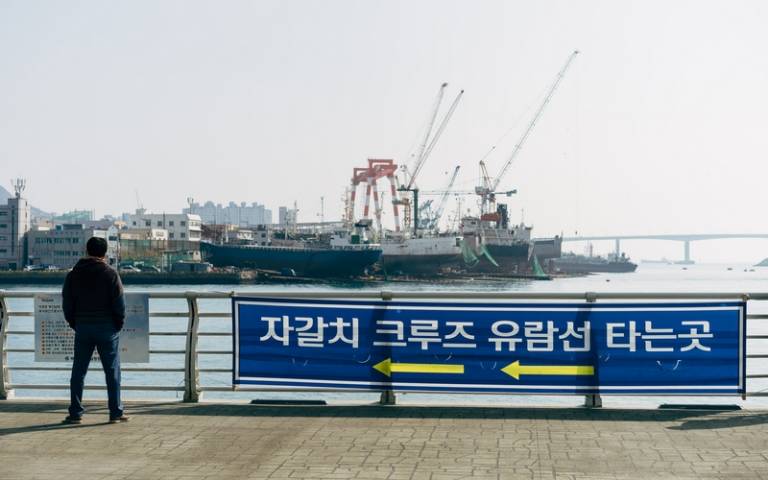Exploring the interaction between international trade and the environment
Law students at UCL are exploring how environmental policies interface with international trade to create a mutually beneficial relationship.

7 October 2020
“Exactly how trade and environment should be integrated remains highly contentious, despite the consistent pledges by the international community to ensure ‘mutual supportiveness’ between international trade and environmental policies as a means to achieve sustainable development,” explains Dr Gracia Marin Duran (UCL Laws).
A research-led and interactive module in UCL Laws equips students with advanced knowledge and critical understanding of the increasingly complex interaction between international trade and environmental protection.
The LLM Law and Policy of International Trade and the Environment is centred on problem-based learning and gives students the opportunity to explore real-world case studies of prominent environmental measures or principles and their relationship with World Trade Organization disciplines.
““Exactly how trade and environment should be integrated remains highly contentious, despite the consistent pledges by the international community to ensure ‘mutual supportiveness’.”
Most of the trade–environment interface examined in the module relates to climate change mitigation (eg, border carbon adjustments and promotion of climate-friendly, renewable energy) and is thus closely connected with SDG7: Affordable and Clean Energy and SDG13: Climate Action. It also considers other global environmental concerns, such as biodiversity, conservation, precaution and fair and equitable profit-sharing, as well as the fight against unsustainable fishing practices – the latter being directly linked to SDG14: Life Below Water.
By bringing together students from the different LLM specialisms within one classroom, the module seeks to encourage mutual learning and constructive exchange on the heated ‘trade-and-environment’ debate.
 Close
Close


